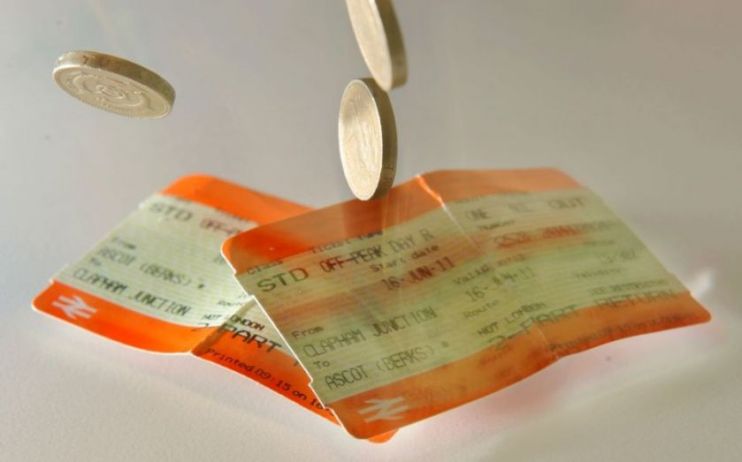‘The last thing commuters need’: London business groups slam rail fare hike

London business groups have slammed a significant government hike in rail ticket fares set to hit commuters next March.
The Department for Transport (DfT) has committed to ensuring any fare increase falls below the nine per cent rise in the Retail Price Index (RPI) inflation measure, announced by the ONS on Wednesday morning.
Regulated rail fares – which account for 45 per cent of fares on Britain’s railways – have previously risen in line with that figure.
But last year’s hike was instead tied to July’s average earnings growth, after the government intervened amid soaring inflation.
That increase was still the largest rise in a decade and commuters now face a further jump, with the most recent earnings growth rate in June the highest in two decades.
Adam Tyndall, programme director for transport at BusinessLDN, which represents a host of London businesses, told City A.M. “increasing rail ticket prices without any clear plan to improve services is the last thing commuters need amidst a cost of living crisis.”
A similar rise to this year would see commuters face an average £300 hike in the cost of annual travel in and out of London, according to the pressure group Campaign for Better Transport.
“Passengers continue to be frustrated by disrupted services, and there is no end in sight for industrial action,” Tyndall said, adding “much-needed industry reforms have also been put back on the shelf – including modernising the whole system of how tickets are priced”.
Jane Gratton, deputy director of public policy at the British Chambers of Commerce , said “businesses across the UK need an affordable and reliable railway to help grow the economy.”
She told City A.M. “with firms operating in a tight labour market, it is important that any barriers to workers are removed. Rail travel should be value for money, wherever you are based in the country.”
Claire Harding, the Centre for London’s interim chief executive, warned “while these fare rises will have a nationwide impact, they’ll hit hard in London”.
“Londoners are more likely to rely on trains for their commute, they face an already higher cost of living and if higher fares push people back to cars, Londoners are already facing the worst pollution.”
The DfT has yet to confirm how next year’s change in fare price will be calculated.
Politicians, unions and pressure groups echoed the business groups’ concerns and on Wednesday called for the government to immediately freeze rail fares.
Liberal Democrat leader Ed Davey MP said “families and pensioners are being clobbered by inflation and the buck stops with Rishi Sunak. Now millions will also be stung by terrible rail fare hikes.”
A DfT spokesperson said “following last year’s biggest ever government intervention to cap rail fare increases well below inflation, we’ll continue to protect passengers from cost of living pressures and we will not increase next year’s rail fares by as much as the July RPI figure.”